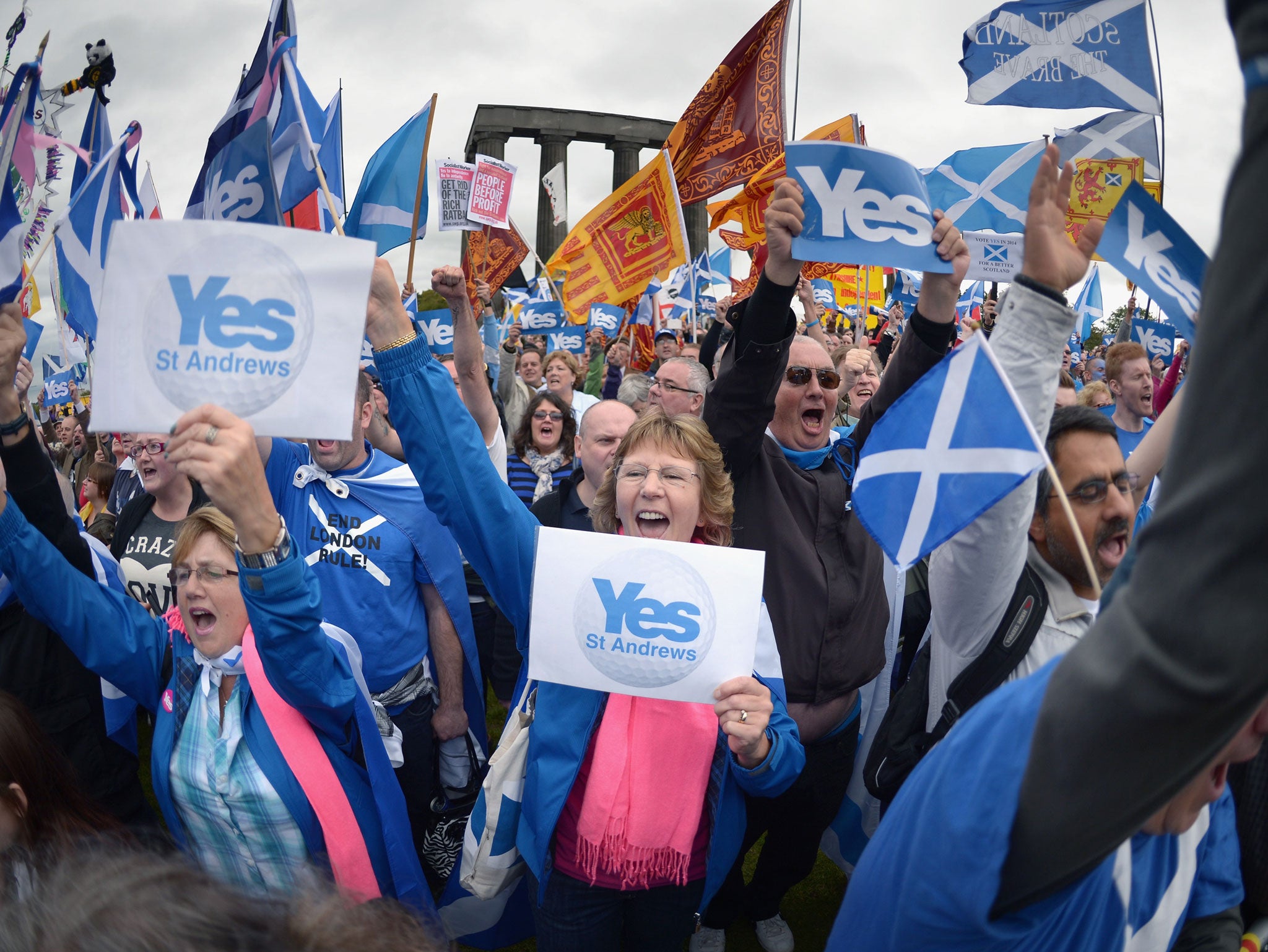Scottish independence: What a Yes vote would really mean in the longer term

Your support helps us to tell the story
This election is still a dead heat, according to most polls. In a fight with such wafer-thin margins, we need reporters on the ground talking to the people Trump and Harris are courting. Your support allows us to keep sending journalists to the story.
The Independent is trusted by 27 million Americans from across the entire political spectrum every month. Unlike many other quality news outlets, we choose not to lock you out of our reporting and analysis with paywalls. But quality journalism must still be paid for.
Help us keep bring these critical stories to light. Your support makes all the difference.
Any American will tell you the country became independent on 4 July 1776, but it did not. That was the date of the Declaration in Philadelphia, but legal independence only arrived when the British government conceded it under the terms of the Treaty of Paris seven years later in 1783.
The parallel is relevant for today’s Scottish vote. To judge from a lot of the comment and coverage, a Yes vote today will see border posts on the Cheviots at the weekend with all the other paraphernalia of statehood coming along a few days later. It is a vote, we are told, which is irrevocable and will change the world for ever.
But is that really true? A Yes vote does not deliver independence; it delivers a negotiation to secure the terms of independence. The aspiration is that these will be completed in a couple of years. But once politicians start negotiating, anything can happen.
Though Alex Salmond has said repeatedly that he expects the negotiations to be amiable, divorces seldom are – however well-intentioned the parties are when they set out.
Tension is inevitable because the better one side negotiates, the worse off the other side becomes. Every concession to Scotland will increase the cost to the rest of the UK.
But it will also be horrendously time-consuming to unpick the arrangements between the two countries, so most of the betting is that it could easily take several years, during which time nothing will change.
And it is potentially even more complicated than that. There is a UK general election next May so there is no guarantee that it will be a David Cameron-led team handling the talks on the Westminster side after that date.
More piquantly, there is a general election for the Scottish Parliament in 2016 and there is no guarantee that Alex Salmond and the nationalists will win that either.
At the last election in 2011 his was the largest single party, with 69 of the 129 seats. They won 44.7 per cent of the vote but only half the electorate turned out so he actually became First Minister with the support of only one in four of the potential voters.
That means there is ample scope for the SNP to lose office next time, and it is not impossible that the negotiations would then be led by non-nationalists on the Scottish side.
There are a lot of “ifs” in this, but surely the most likely outcome some years down the line is that the negotiators come up with two options: one would be “devo max” with lots of sweeteners; the other would be full independence with nothing.
And how would they choose which to apply? The UK government has the power to demand a second referendum – one which also gives the vote to the Scots who are living in England. Faced with the realisation that “Yes to independence means less”, then it is surely highly likely that the voters next time round would plump to stay in the Union and take the devo max.
A Yes vote today is not the beginning of the end; just the end of the beginning.
Subscribe to Independent Premium to bookmark this article
Want to bookmark your favourite articles and stories to read or reference later? Start your Independent Premium subscription today.
Join our commenting forum
Join thought-provoking conversations, follow other Independent readers and see their replies
Comments